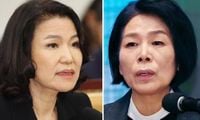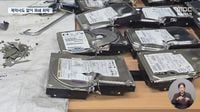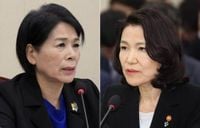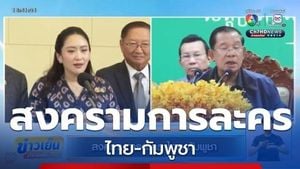On the morning of June 27, 2025, a tense scene unfolded at the Korea Communications Commission (KCC) headquarters in Gwacheon, South Korea, when a large-scale destruction of office PC hard drives was abruptly halted by officials from the National Assembly Science, ICT, Broadcasting, and Communications Committee (KCC Committee). Over 130 computers were slated for disposal, but the process raised immediate suspicions among lawmakers and the public alike.
The KCC, led by Chairman Lee Jin-sook, claimed that these devices had reached their end-of-life after three years and were being discarded according to internal protocols. However, the destruction company involved revealed that the contract was unusually informal, with the entire service request made via telephone and no official paperwork such as contracts or work orders provided. The company also noted that instead of receiving payment in cash, the KCC proposed that they collect leftover PC parts after hard drive destruction, and internal documents indicated the cost was marked as "free." Such irregularities have fueled speculation that the KCC was attempting to avoid leaving official records of budget expenditure.
Further complicating matters, there are concerns that some of the destroyed hard drives may have contained sensitive documents related to Chairman Lee’s alleged illegal "two-person system," raising the possibility of evidence tampering or destruction. This echoes a prior case involving former presidential secretary Jeong Jin-seok, who was investigated for destroying PCs from the Yongsan Presidential Office.
During the same day’s full committee meeting at the National Assembly, the atmosphere remained charged. Democratic Party member Choi Min-hee openly criticized the KCC, stating, "The Korea Communications Commission is broken and cannot properly perform its functions without major surgery," a sentiment she said was shared by many Democratic lawmakers. Lee Jin-sook disagreed sharply, responding, "I do not agree," which sparked a heated exchange between the two. Choi repeatedly told Lee not to interrupt, while Lee insisted her remarks were "very perfunctory," leading to a back-and-forth that underscored deep divisions within the committee.
Choi Min-hee also revealed that she is preparing legislation to abolish the KCC altogether, asserting that the commission is incapable of fulfilling its broadcasting policy duties in its current state. She emphasized that this initiative was independent and not coordinated with the Presidential Office. Meanwhile, People Power Party member Park Jung-hoon questioned Lee Jin-sook about her awareness of the abolition bill, to which Lee admitted she was aware but expressed hope for reform through expanding the commission from a criticized "two-person system" to a full five-member panel.
Compounding the discord, the committee also debated the "Broadcasting 3 Laws"—amendments to the Broadcasting Act, Broadcasting and Culture Promotion Act, and Korea Educational Broadcasting System Act—aimed at reforming public broadcasting governance. The Democratic Party plans to pass these amendments during the June extraordinary session of the National Assembly, but the process has been contentious.
Eight prominent media organizations, including the Journalists Association of Korea and the National Union of Media Workers, issued a joint statement urging swift passage of the Broadcasting 3 Laws, stressing the importance of reducing political influence over public broadcasting and enabling diverse stakeholders to participate in governance. They called for direct public involvement in selecting public broadcasting presidents and the institutionalization of internal oversight mechanisms, describing these reforms as a crucial first step toward political independence that has been deferred since South Korea’s democratization in 1987.
However, KCC Chairman Lee Jin-sook voiced skepticism about the amendments, arguing that proper operation of public broadcasting is more critical than simply changing the number of board members. She stressed that public broadcasting must be independent not only from political and capital powers but also from labor unions. This stance put her at odds with the Democratic Party, whose members largely support the amendments.
The internal division was further exposed when Kim Hyun, a Democratic Party member, questioned Kim Young-gwan, acting chief of the KCC Secretariat, about the commission’s position on the Broadcasting 3 Laws. Kim Young-gwan confirmed that the Secretariat supports the legislation under the "People’s Sovereignty Government"—a reference to the Lee Jae-myung administration—highlighting a rift between the commission’s leadership and its staff.
During the committee meeting, Lee Jin-sook’s conduct drew criticism from lawmakers. She was repeatedly cautioned for interrupting and speaking out of turn during questioning. When asked directly if she intended to resign—given calls to align the chairman’s term with the president’s—Lee refused. She stated her term runs until August 24, 2026, and insisted she would fulfill her duties faithfully, rejecting suggestions that she was merely "enduring" the position. On inquiries about allegations of corporate card misuse and police investigations, Lee declined to comment, citing ongoing legal proceedings.
These events paint a picture of a commission mired in controversy and internal conflict at a critical juncture. The destruction of hard drives under questionable procedures, the public clash between key figures, and the legislative battles over the future of public broadcasting governance all underscore a period of intense upheaval. As South Korea grapples with reforming its media landscape, the KCC stands at the center of a storm that could redefine its role and authority for years to come.






